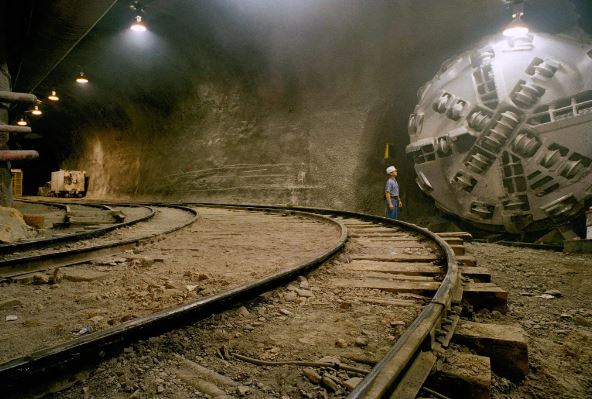Particle physicists are urged to initiate the groundwork for a groundbreaking particle collider that could potentially be constructed in the United States, according to a draft report released on Thursday by a committee of scientists. This proposed machine would collide muons, which are tiny, point-like particles more massive than electrons, providing a more cost-effective approach compared to protons used in the Large Hadron Collider at CERN. The muon collider aims to delve deeper into the unknown, exploring new forces and particles.
The suggested location for this project, possibly at the Fermi National Accelerator Laboratory in Illinois, could restore American particle physics to pre-eminence, a position relinquished to Europe in 1993 when the U.S. Congress canceled the Superconducting Super Collider. However, the realization and costing of the muon collider could take at least a decade to establish.
The committee, known as the Particle Physics Project Prioritization Panel (P5), is tasked with outlining a vision for the next decade of American particle physics. The draft report, titled “Exploring the Quantum Universe: Pathways to Innovation and Discovery in Particle Physics,” emphasizes the need for investing in experiments related to neutrinos, the cosmic microwave background, and dark matter. Additionally, the panel recommends U.S. participation in a future facility in Europe or Japan dedicated to studying the Higgs boson.
Hitoshi Murayama, a physicist at the University of California, Berkeley, who led the committee, described the field’s objective as not merely identifying fundamental constituents but gaining a broader understanding of how the universe works as a whole. The report is based on a three-year process that included input from the particle physics community, culminating in recommendations for national agencies’ priorities over the next decade.
While the last P5 report in 2014 marked the success of the Standard Model with the discovery of the Higgs boson, the model falls short in explaining gravity, black holes, dark energy, and dark matter. In the past decade, progress in these areas has been limited, with challenges in identifying dark matter and popular hypotheses, such as supersymmetry, nearing elimination.
The draft report considered two budget scenarios provided by the U.S. Department of Energy. In one scenario with a 3 percent annual budget increase, the committee emphasized pursuing major projects like a system of telescopes studying the cosmic microwave background, an offshore Higgs factory, and a scaled-up version of the IceCube observatory capturing neutrinos.
This budget scenario would also allow for the support of a proposed particle collider in the United States, potentially hosted at Fermilab. Muons, being elementary particles, offer more energetic collision results compared to the messy proton collisions in existing colliders. A muon collider is one of three options under consideration as the successor to CERN’s Large Hadron Collider.
The second, less optimistic budget scenario, involving only a 2 percent yearly increase, would require the United States to abandon certain initiatives, such as hosting a dark-matter experiment in South Dakota and planned upgrades to the Deep Underground Neutrino Experiment (DUNE). The committee stressed that such a scenario would lead the U.S. to cede leadership in specific areas of particle physics.
The draft report suggests that the federal government should continue commitments to existing projects, including increasing the luminosity of the Large Hadron Collider, completing the Vera C. Rubin Observatory, and supporting a limited version of DUNE. The report emphasizes backing early-career scientists involved in these long-term projects.
The Department of Energy’s High Energy Physics Advisory Panel is set to vote on the draft report. If accepted, the committee will shift its focus to garnering support for the proposed plan within and outside the physics community, with an aim to attract attention from congressional members responsible for the department’s budget.
Particle physics, despite being a tough sell due to its lack of immediate benefits, has historically led to significant advancements in various fields, including medical applications, materials science, and technological innovations. The potential insights gained from further exploration into particle physics may offer answers to fundamental questions about our existence and the universe.

